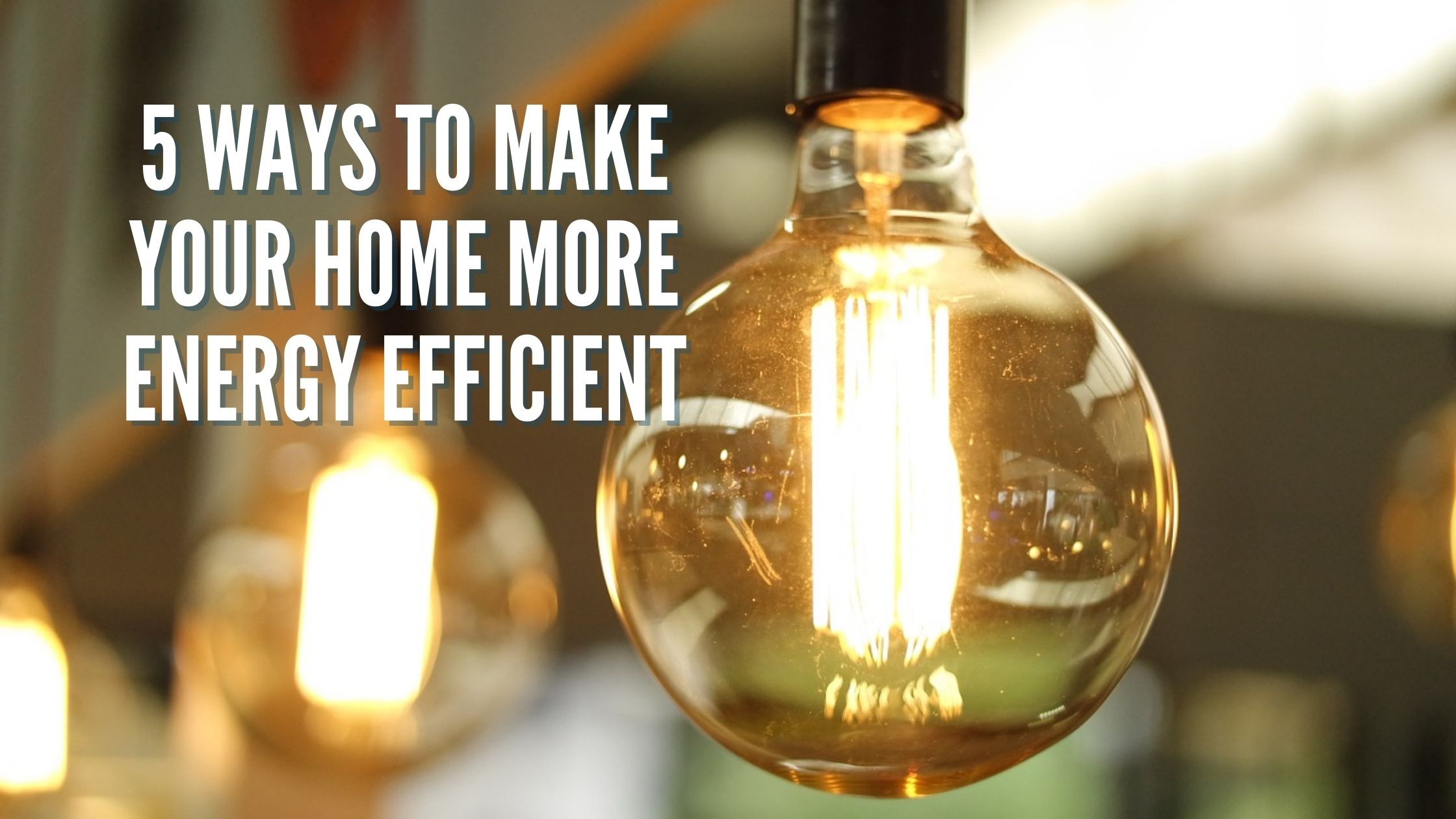We all want our homes to be more energy-efficient. Whether it's because we want to do our part to keep the planet green, or because we want to see the numbers on our electricity bill come down, all of us have the proper motivation for making the energy we use go as far as possible. Sometimes the solution to living in a more energy-efficient house is right under your nose, though. If you've been looking for ways to cut costs without sacrificing comfort, here are five suggestions you should strongly consider.
#1: Double Glazing On Your Windows
Old-fashioned windows are a major source of problems if you're striving for energy efficiency. Single-pane windows, the sort people most commonly think of when they think of windows, allow the temperature to transfer through them with relative ease. If it's cold outside and you're trying to keep warm, then that warmth is going to pass right through those windows. The reverse is also true, which means you need to crank your air conditioning in the summer if you want to keep your house cool.
If you want to be more efficient, try installing double-glazed windows. A double glazed window is made up of two panes of glass, with a sealed pocket of air between them. These windows reduce energy transfer, as well as noise because it is significantly more difficult for heat or sound to penetrate all three layers. It's like how layering your clothing keeps you warmer than a single, thick layer does. Double glazing on your windows ensures your home has more insulation, and that you're losing less energy, than if you were just depending on a single pane of glass.
#2: Install A Programmable Thermostat
Your thermostat is the command center for your heating and cooling system. It's what sets the pace, and decides if your furnace needs to fire up to full-blast or shut off because your home is warm enough. And while a standard thermostat is fine, a programmable thermostat allows you to make changes that will save you energy in the long run.
For example, say you have an 8-hour shift at work. No one is home while you're at the office, so why would you waste energy heating your house? Instead, you program your thermostat to shut off (or at least cool down) when you leave, and then to come back on about an hour before you come home. This ensures your home is always comfortable for you, but it means there are seven hours in the day you don't have to pay for heating or cooling.
#3: Get Energy Star Appliances
While buying new appliances is a big cost for homeowners, the long-term savings in energy efficiency is often worth it. Energy Star appliances are the most efficient devices you can have installed in your home, and there's often a tax break associated with them. Recycling your old refrigerator, water heater, etc. can be a fitting end for appliances that have served their purpose, but who have gotten too old to keep up with today's demands for efficient machines.
#4: Change Your Light Bulbs
While it might seem like a small thing, a colossal amount of energy goes into our lights. So if you're going to screw in a new bulb, ask whether you want to use a traditional bulb, or a more modern, fluorescent lamp. Because incandescent bulbs will light up a room, but they don't last as long, and most of the energy that goes into them becomes heat instead of light. So while a curli-cue bulb might feel like a big change, it's really just a sensible way to save money and energy. That, and they can last for years, instead of months.
#5: Change Your Habits
One of the major components in a home's energy usage is us. We are the ones who decide whether or not to turn on the heat, we are the ones who opt to use the big television set instead of a smaller one, and we are the ones who leave the lights on when we walk out of a room. One of the best ways to increase your home's efficiency is to increase your own. If you're alone in the house, for example, try watching a movie on your laptop instead of firing up the big-screen TV. If you're a little chilly, put on a sweater or curl up under a blanket before you turn up the heat. That can make a huge difference when you get your bill at the end of the month.
About the Author: Ollie White is a passionate writer and supporter of the green world. She writes about economical consumption and new energies that will save the future of our planet and humankind.


